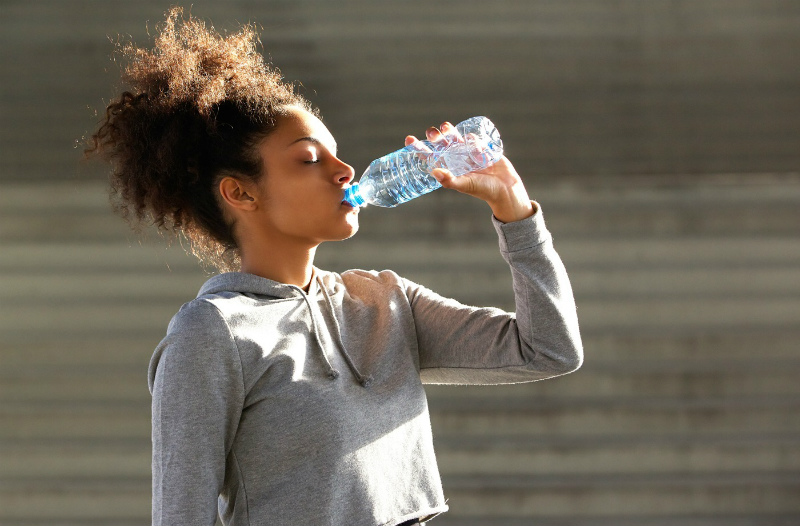Warm weather can provide the perfect conditions to hit the beach, lounge by the pool or just spend time outside. But you have to stay hydrated to enjoy any of those activities. Your body loses more fluids in the summer, meaning it easier to become parched and even more crucial to sip on that H2O.
But just how much water should you be consuming? And are there any other ways you can get it? We consulted experts to find out what you need to know about staying healthy and hydrated in the heat.
How Much You Need
Your water needs vary depending on your weight and body type, said Lauren Minchen, a registered dietician and nutritionist at Lauren Minchen Nutrition in New York.
“The exact amounts [of water] vary person to person, but 2 to 4 liters for active adults is a general target range to aim for to stay adequately hydrated, and your needs may vary in that range with changing outdoor temperatures,” Minchen said. (For reference, that’s about 68 ounces to 135 ounces.)
However, she said, your water intake will most likely need to be higher if you exercise regularly because your muscles require more water to function properly and maintain mass.
Your body works hard to stay cool in the heat by sweating, said Amy Shapiro, a registered dietician, nutritionist and founder of Real Nutrition NYC.
“It is important to replenish the water we lose when we sweat to prevent dehydration,” Shapiro said. “One of the best ways to accomplish this is to drink water throughout the day and before you actually feel thirsty.”
Shapiro recommends drinking half of your body weight in ounces of water. So if you weigh 180 pounds, you need to drink 90 ounces, or about 3 liters, of water daily. The Mayo Clinic also recommends drinking 2.7 liters of water a day for women and 3.7 liters for men.
Signs You’re Parched
The color of your urine can tell you if you need to drink more water. Shapiro and Minchen both said your urine should be close to the shade of lemonade, and that you should drink more water if it’s any darker.
Fatigue, dry skin, muscle cramping, constipation and dizziness are also indicators of dehydration.
Your age can also impact your hydration levels and how easily you become H2O deprived. We notice our thirst less as we get older, said Andrea Moss, a holistic nutrition coach and founder of Moss Wellness.
“Our thirst mechanism gets weaker with age, so getting in a habit of sipping water throughout the day, at every age, is a great idea to be sure we’re staying optimally hydrated,” Moss said.
Have Your Water And Eat It, Too
Eating foods that have a high water content can also help your hydration levels.
“Eating fruits and vegetables can contribute majorly to healthy hydration,“
Shapiro said. “In the summer, watermelon is a great source for hydration, as it contains water.”
Eating cucumbers, celery, broccoli and spinach will also help get the job done.
“In addition, broth-based soup can help you hydrate, or have some gazpacho,” Shapiro said. “Since it’s a chilled soup, it can help avoid unwanted sweating, and it’s filled with vegetables.”
There has been a lot of debate around adding electrolytes to water and drinking water with high pH levels, Minchen said. Electrolytes are minerals that help balance the amount of water in your body and your body’s pH level.
Minchen generally recommends that her clients keep it simple.
“Distilled, filtered, and spring water are all good options. A high-pH water is fine, as well as electrolyte waters,” she said, adding that neither high-pH water nor electrolyte waters will hurt you.
Shapiro said drinking water with electrolytes can be beneficial for you if you exercise frequently or sweat a lot.
And if you’re hooked on drinking sparkling water like La Croix, there’s (some) good news for you.
“Seltzer can be OK, but shouldn’t replace water,” Moss said. “Flavored soda water is so popular right now, and it’s definitely a healthier choice than sugary beverages. I recommend sticking to around one glass of seltzer per day and getting your hydration needs met through water, in addition to high-quality broths, teas, fruits and vegetables.”
So although you may have to run to your nearest bathroom more often than usual, imbibing water on hot days is worth it. Stay cool and drink up.

